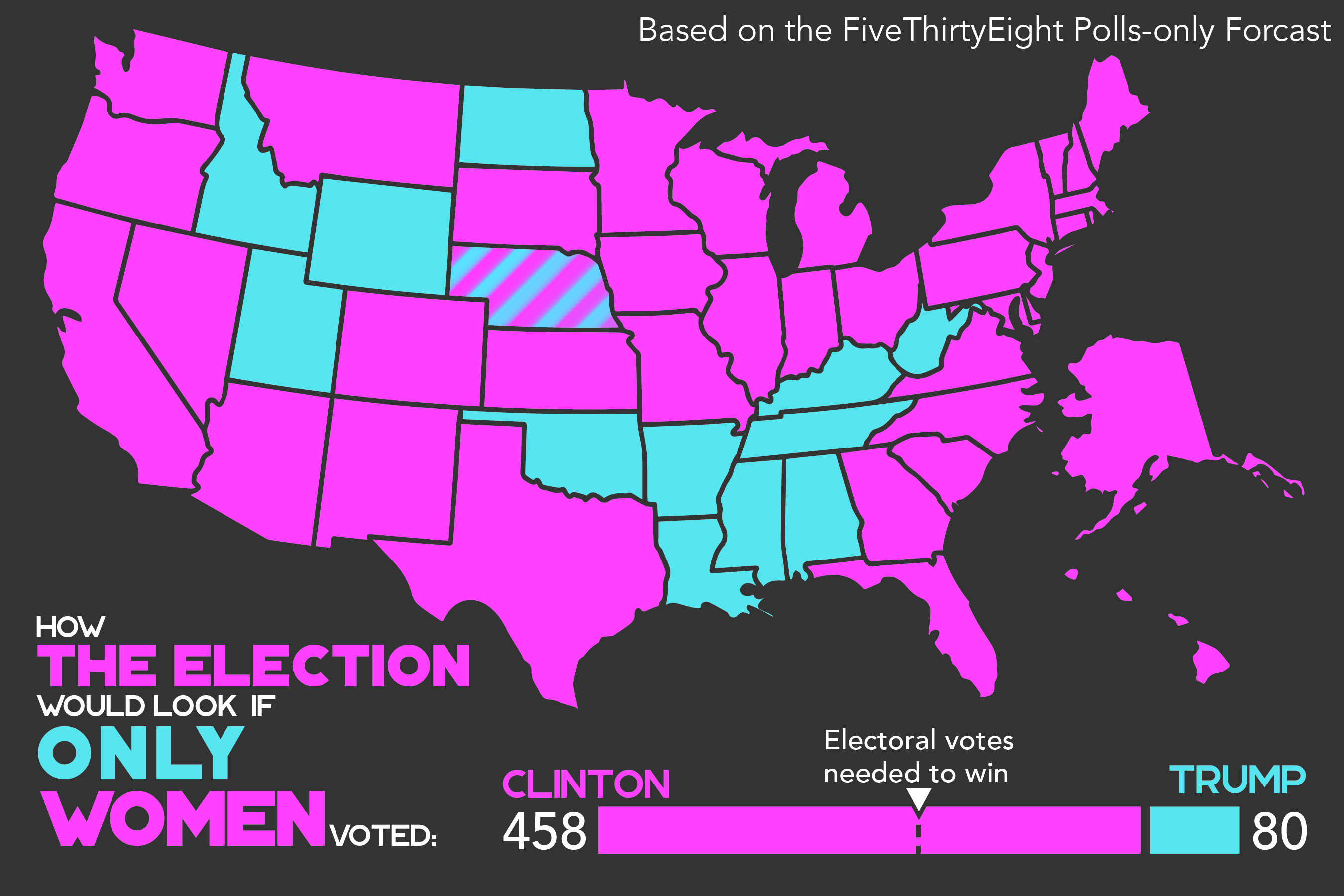MORGAN STARK; Matrix Editor; starkml@plu.edu
“The double standard is alive and well, and I think in many respects the media is the principal propagator of its existence,” Hillary Clinton remarked at the Women in the World event in 2014.
Gender in politics has dominated the discourse of the current election cycle. It has become one of the main topics discussed not only by news outlets, but also U.S. citizens, people in countries outside of the U.S. and the candidates themselves.
Gender affects and shapes many parts of our society, according to “Introduction: Gender and Politics: A Gendered World, a Gendered Discipline.” The government is one of the larger institutions that houses gendered expectations and roles.
Since the presidential campaign began, gender has taken over the conversation and has brought gendered issues in the U.S. government to the forefront of news coverage.
These conversations are not just taking place in the news, though. They are happening all over the country.
In October, Assistant Professor of English Jenny James spoke during Election 2016: Let’s Talk about Gender, an event sponsored by Lute Vote. Attendees gathered to discuss gender and how it influences the upcoming local and national elections.
James asked an audience of more than 40 PLU community members to “think about gender beyond just the fact that a woman is running for president” and think more about the gender biases that divide parts of our government.
James said the U.S. government is like a brotherhood and it’s very hard for women to represent themselves within it.
Assistant Professor of Chemistry Andrea Munro brought up the role of intersectionality in the election.
She spoke on identity and how it influences the conversations around voters in our nation. She said conversations about gender also bring up discussions about how other identities shape U.S. politics.
Intersectionality, the concept that all identities shape privilege and power, helps form voters’ opinions and perspectives before they head to the polls.
Munro remarked how issues, like gender, have been segregated into categories that only certain groupswill vote on, which creates a divide and pushes marginalized people to the outer edges of discussion in politics.
Associate Professor of Religion Seth Dowland used his knowledge of history to highlight how masculinity and the idea of the “self-made man” has defined why some people support Donald Trump for president. Dowland discussed how Trump is against globalization and free trade because these things are threatening the ability for the nation to get back to the traditional ideals that “make America great.”
But with this emphasis to “make America great again,” many groups have be pushed to the margins.
Rainbow Center Crime Victim Advocate Vaan Melendez highlighted the lack of candidates discussing the issues for one huge marginalized group: the transgender community.
She brought to light health issues that are specific to the transgender community and are rarely or never dealt with in this country’s politics. She advocated for policies that need to be changed and created to support the LGBTQ community.
The event ended with information about how to register to vote, as well as some final thoughts from Jenny James. She expressed the importance that our votes have on the lives of all the U.S. citizens and emphasized voters’ responsibility to uphold the democratic system by casting their votes.
James ended the discussion saying, “Voting is a responsibility and privilege as a U.S. citizen, and voting is about others.”

















